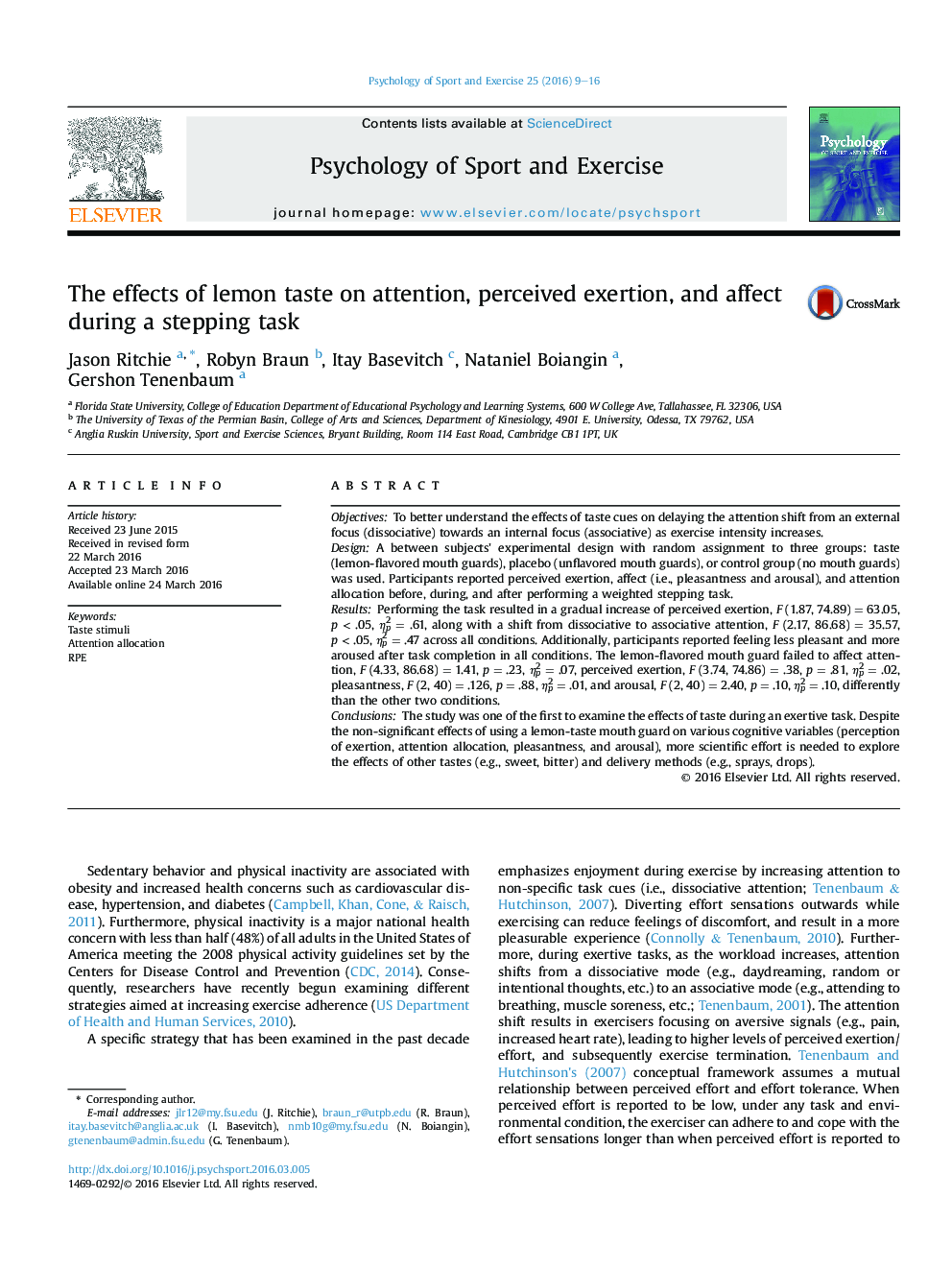| کد مقاله | کد نشریه | سال انتشار | مقاله انگلیسی | نسخه تمام متن |
|---|---|---|---|---|
| 894236 | 1472102 | 2016 | 8 صفحه PDF | دانلود رایگان |
• Attention shifted from dissociative to associative as exercise intensity increased.
• Ratings of perceived exertion increased linearly with time and effort.
• Taste (lemon flavor) did not significantly delay the attention shift.
• Taste did not affect ratings of perceived exertion.
ObjectivesTo better understand the effects of taste cues on delaying the attention shift from an external focus (dissociative) towards an internal focus (associative) as exercise intensity increases.DesignA between subjects' experimental design with random assignment to three groups: taste (lemon-flavored mouth guards), placebo (unflavored mouth guards), or control group (no mouth guards) was used. Participants reported perceived exertion, affect (i.e., pleasantness and arousal), and attention allocation before, during, and after performing a weighted stepping task.ResultsPerforming the task resulted in a gradual increase of perceived exertion, F (1.87, 74.89) = 63.05, p < .05, ηp2 = .61, along with a shift from dissociative to associative attention, F (2.17, 86.68) = 35.57, p < .05, ηp2 = .47 across all conditions. Additionally, participants reported feeling less pleasant and more aroused after task completion in all conditions. The lemon-flavored mouth guard failed to affect attention, F (4.33, 86.68) = 1.41, p = .23, ηp2 = .07, perceived exertion, F (3.74, 74.86) = .38, p = .81, ηp2 = .02, pleasantness, F (2, 40) = .126, p = .88, ηp2 = .01, and arousal, F (2, 40) = 2.40, p = .10, ηp2 = .10, differently than the other two conditions.ConclusionsThe study was one of the first to examine the effects of taste during an exertive task. Despite the non-significant effects of using a lemon-taste mouth guard on various cognitive variables (perception of exertion, attention allocation, pleasantness, and arousal), more scientific effort is needed to explore the effects of other tastes (e.g., sweet, bitter) and delivery methods (e.g., sprays, drops).
Journal: Psychology of Sport and Exercise - Volume 25, July 2016, Pages 9–16
